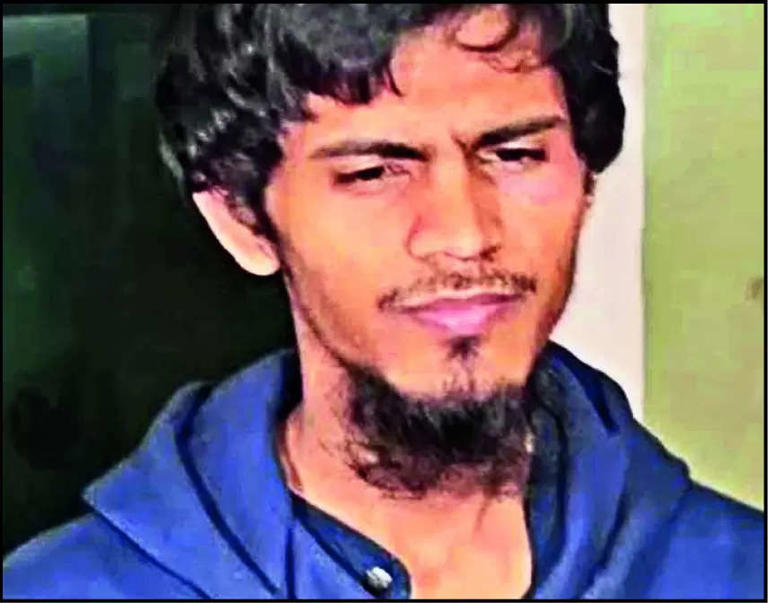Once hailed as a budding cricket talent renowned for his left-arm spin in the bustling streets of Delhi, Tauseef Ali Farooqui harbored dreams of representing India on the international stage. But now, as he nears the completion of his studies at the prestigious Indian Institute of Technology (IIT) in Guwahati, his aspirations have taken a dark turn.
At just 22 years old, Farooqui finds himself entangled in a web of allegations after his arrest by Assam Police under the Unlawful Activities Prevention Act (UAPA). The charges stem from his purported expressions of allegiance to the terrorist organization ISIS, revealed through emails and a LinkedIn post.
Farooqui’s journey from cricketing promise to alleged extremism has left many bewildered. His academic excellence, evidenced by his single attempt success in cracking the rigorous IIT entrance exams, seemed to mark him as a bright young talent poised for a successful future in biotechnology.
However, his recent arrest paints a starkly different picture. Assam Police’s Special Task Force (STF) claims to have uncovered credible evidence linking him to ISIS, suggesting a radical departure from his once-promising trajectory.
In a startling revelation, it was disclosed that Farooqui had openly disassociated himself from mainstream Indian institutions, including the constitution, expressing his intent to join ISIS in the Khorasan province. His alleged LinkedIn post detailed his desire to make “Hijrat” to pledge allegiance to the IS leadership, framing his actions as a struggle between believers and non-believers.
Further raising suspicions, a black flag resembling that of ISIS was reportedly discovered in Farooqui’s hostel room, heightening concerns about his potential involvement with the proscribed outfit.
The transformation from a diligent student and talented cricketer to a suspected extremist has left Farooqui’s family grappling for answers. They attribute his alleged radicalization to deteriorating mental health, citing his withdrawal and peculiar behavior during the COVID-19 pandemic lockdown.
Despite their distress, the family contends that the IIT administration should have intervened to address Farooqui’s mental health struggles, potentially averting the trajectory that led to his arrest.
Farooqui’s case is not an isolated one. Intelligence agencies suspect a network of online recruiters, operating via platforms like Telegram, targeting educated youths, particularly engineering students, with extremist ideologies. Similar cases of alleged radicalization, including those of Arshad Warsi and Mohammed Shahnawaz, highlight the broader implications of online influence in fostering extremist sentiments.
As Farooqui’s story unfolds, it serves as a sobering reminder of the complexities surrounding radicalization and the need for vigilance in combating extremist narratives, particularly within educational institutions where impressionable minds may be vulnerable to manipulation.
While Farooqui’s fate remains uncertain, his journey serves as a cautionary tale, underscoring the importance of addressing mental health concerns and countering extremist propaganda to safeguard the future of promising young individuals.


